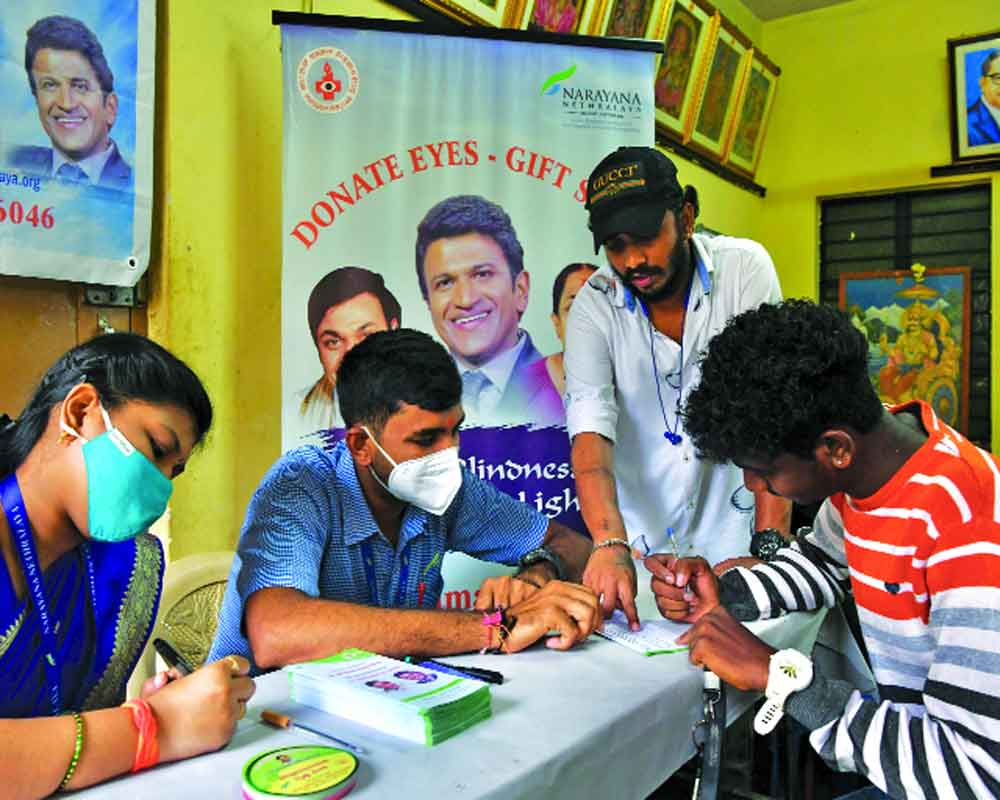Many people feel hesitant to donate eyes
Though every organ of the body is equally significant, eyes are more special. It allows us to witness this beautiful world and the aesthetics it has to offer. But, unfortunately, millions of people in India suffer from visual impairments, which deprive them of their sense of sight. In India, almost 6.8 million people suffer from vision loss in at least one eye due to corneal diseases and of these around a million are affected in both eyes. The only way to address this growing concern is through corneal transplantation. However, India faces a severe shortage of cornea donations. Each year nearly 75,000 people with corneal blindness miss out on the opportunity to regain their vision in India. Prevalent myths work against eye donations, besides lack of awareness and fear associated with the process.
There are plenty of scopes to promote eye donation, considering the fact that a lot of people are eager to donate their eyes. However, the only hindrance is a well-planned, adequate approach. As far as eye donation awareness is concerned, it is extremely low in the country, more so in rural areas. While awareness regarding eye donation in urban areas is almost 80 per cent, in rural areas it is around 28 per cent. On top of that, families of people who pledge their eyes for donation are often dissuaded by their relatives to not donate their eyes.
The general lack of awareness is a critical factor behind ignorance and taboos. To address the same, there need to be nationwide awareness campaigns stressing the importance of eye donation. In addition to that a desirable amount of assistance and counselling given by medical counsellors and practitioners can further enhance the situation. The situation is also worsened because of the lack of trained cornea surgeons and grief counselors. Tragically, several corneas go unused after they are collected since there is an insufficient number of corneal surgeons to transplant them. Grief counselling is a part of the Hospital Cornea Retrieval Program (HCRP) launched in 1990. The grief counselors provide counseling to the deceased's family and also encourage them to donate the eyes of the deceased with a more planned approach. There is a need for a robust system so that the people feel at ease while donating the vital organs.
As per a study, only 12.1 per cent of these grief counselors had excellent skills and knowledge required to counsel people. To come up with a proper intervention method for eye donation, the training capabilities for grief counselors need to be enhanced. Also, steps must be taken by the health ministry to optimize the number of cornea surgeons and specialists in the country. Additionally, India requires an even distribution of eye banks across the different states. To fill the infrastructural gap, over 2000 eye donation centres (EDCs) and eye banks (EBs) are required. Apart from EDCs and EBs, training facilities and surgical skill development should also be made available to surgeons from all regions.
While eye donation is indeed a noble cause, many people still feel hesitant to pledge to donate their eyes due to a lack of proper information and transparency in the process. It is the need of the hour to ensure proper integration between all the stakeholders (doctors, government agencies, etc.) to improve awareness, especially at the grassroots level that will also benefit the farthest and inaccessible regions of the country.
(The author is CEO, Entod Pharmaceuticals)


























